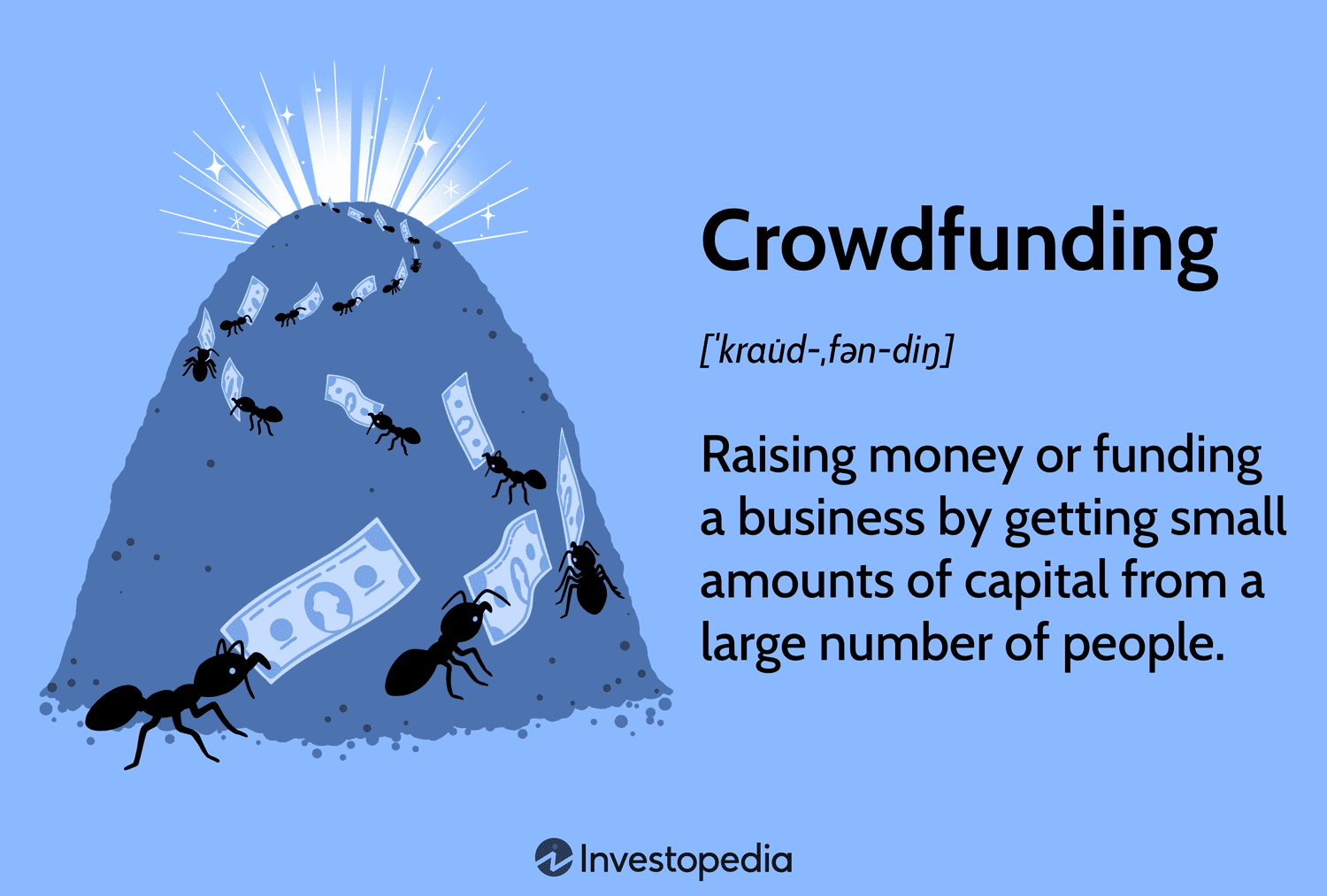In this article, you will learn about the best crowdfunding platforms that can help you turn your ideas into reality. Whether you are an entrepreneur looking to launch a new product or an artist seeking funding for your next masterpiece, these platforms provide a way for you to connect with potential backers and raise the necessary funds. From Kickstarter to Indiegogo, we will delve into the features and benefits of each platform, so you can make an informed decision on which one is best suited for your project.
When it comes to crowdfunding, it's important to choose the right platform that aligns with your goals and needs. Kickstarter, for example, is known for its focus on creative projects, making it the perfect platform for artists, designers, and musicians. On the other hand, if you are looking for a platform that offers more flexibility and allows you to keep the funds you raise, Indiegogo might be the right choice for you. By understanding the features and benefits of these crowdfunding platforms, you can start your journey towards making your dreams come true.
Best Crowdfunding Platforms

Introduction
Crowdfunding has become a popular method for individuals and organizations to raise funds for various projects and causes. With the rise of the internet and social media, crowdfunding platforms have made it easier than ever to connect with potential backers and receive support. In this article, we will explore the concept of crowdfunding, discuss the features of a good crowdfunding platform, compare different platforms, and provide tips for running a successful crowdfunding campaign. We will also examine the risks and challenges involved in crowdfunding, as well as legal and regulatory considerations. Furthermore, we will explore the possibilities of crowdfunding for social causes, creative projects, startups, and small businesses.
Understanding Crowdfunding
Definition of crowdfunding
Crowdfunding is the practice of funding a project or venture by raising small amounts of money from a large number of people, typically via the internet. It allows individuals or organizations to present their ideas, products, or services to a wide audience and seek financial support in the form of donations or investments.
Types of crowdfunding
There are several types of crowdfunding, each with its own unique characteristics. The main types include:
-
Donation-based crowdfunding: This type of crowdfunding involves collecting donations from individuals who are passionate about a particular cause or project. Contributors do not expect any financial return or equity in return for their donations.
-
Rewards-based crowdfunding: In rewards-based crowdfunding, backers receive non-financial rewards or incentives in exchange for their financial contributions. These rewards can range from a simple thank-you note to exclusive access to the product or service being funded.
-
Equity-based crowdfunding: Equity-based crowdfunding allows backers to invest in a project or business in exchange for equity or a share in the company. This type of crowdfunding is popular among startups and small businesses looking for investment capital.
-
Debt-based crowdfunding: Debt-based crowdfunding, also known as peer-to-peer lending, involves individuals lending money to others in need, typically with the expectation of receiving the principal amount plus interest over time.
Benefits of crowdfunding
Crowdfunding offers several benefits for both project creators and backers. For project creators, crowdfunding provides a platform to showcase their ideas and receive financial support without relying on traditional funding sources such as banks or investors. It allows them to gauge the interest and demand for their product or service before fully launching it.
For backers, crowdfunding provides an opportunity to support causes or projects they believe in, while also receiving rewards or potential financial returns. It allows individuals to become part of something bigger and contribute to the success of a project or venture.
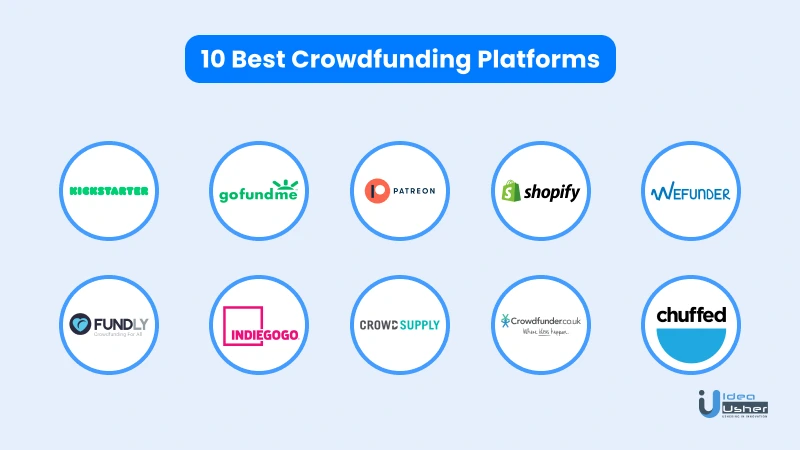
Features of a Good Crowdfunding Platform
When choosing a crowdfunding platform, it is important to consider a few key features that can contribute to a successful crowdfunding campaign.
Accessibility and user-friendliness
A good crowdfunding platform should be easily accessible to both project creators and backers. It should have a user-friendly interface that allows creators to set up their campaigns quickly and effectively. Similarly, backers should be able to navigate the platform easily, view project details, and make contributions without any hassle.
Security measures
Security is an important aspect to consider when using a crowdfunding platform. A reliable platform should have robust security measures in place to protect sensitive user information, such as credit card details. It should also provide secure payment processing options to ensure that backers' contributions are safe.
Flexible funding options
A flexible funding model is another important feature of a good crowdfunding platform. It should provide options for all types of crowdfunding, including donation-based, rewards-based, equity-based, and debt-based. This allows project creators to choose the funding model that best suits their needs and attracts the right backers.
Comparison of Crowdfunding Platforms
Now that we understand the key features to look for in a crowdfunding platform, let's compare some of the best options available in the market:
Platform A: Features and benefits
Platform A is known for its user-friendly interface and accessibility. It offers a wide range of funding options, including donation-based, rewards-based, and equity-based crowdfunding. The platform also provides robust security measures to protect user information and offers flexible payment processing options.
Platform B: Features and benefits
Platform B stands out for its strong community and support network. It has a large user base and provides various resources and tools to help project creators run successful campaigns. The platform offers rewards-based and equity-based crowdfunding options and prioritizes user engagement and interaction.
Platform C: Features and benefits
Platform C is popular for its focus on social causes and impact. It caters specifically to projects and initiatives that aim to make a positive difference in the world. The platform offers donation-based and rewards-based crowdfunding options and provides various resources for creators looking to align their campaigns with social causes.
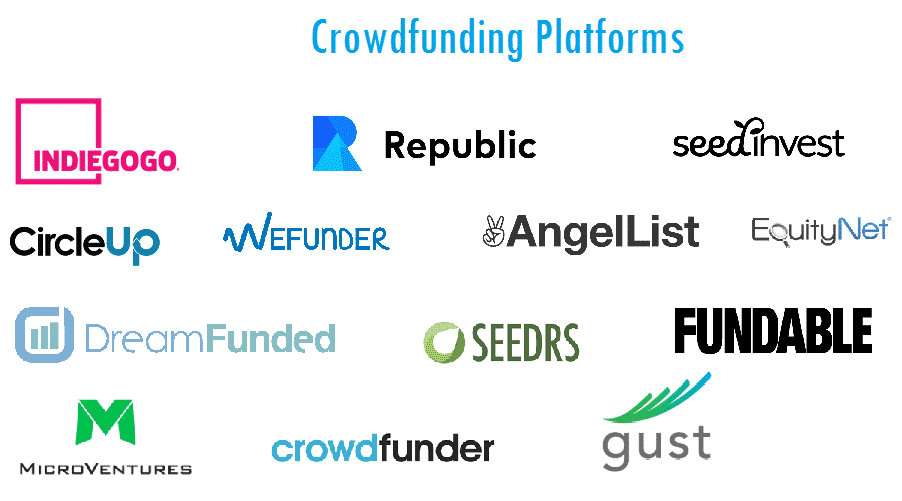
Top Crowdfunding Platforms
After comparing different crowdfunding platforms, let's take a closer look at some of the top platforms available:
Platform 1: Overview and key features
Platform 1 has gained popularity for its wide range of funding options and strong community support. It offers user-friendly features and a secure payment processing system. The platform is known for its diverse user base and has helped fund numerous successful projects across different industries.
Platform 2: Overview and key features
Platform 2 is widely recognized for its emphasis on creative projects and artistic endeavors. It provides a platform for artists, musicians, writers, and other creative professionals to showcase their work and receive financial support. The platform offers rewards-based crowdfunding and has a vibrant community of backers.
Platform 3: Overview and key features
Platform 3 focuses on supporting startups and small businesses. It offers equity-based crowdfunding options and provides valuable resources and guidance for entrepreneurs. The platform has a strong network of investors and offers opportunities for startups to gain exposure and funding.
Factors to Consider When Choosing a Crowdfunding Platform
When selecting a crowdfunding platform, it is important to consider the following factors:
Project requirements
Different projects have different funding needs and requirements. Some projects may thrive on donations and community support, while others may require equity investment or peer-to-peer lending. It is important to choose a platform that aligns with the specific requirements of your project.
Platform fees and charges
Crowdfunding platforms often charge fees for their services. These fees can vary significantly, so it is important to consider the cost implications when choosing a platform. Evaluate the fee structure and compare it with the benefits and features offered by the platform.
Community and support
The strength of the platform's community and support network is crucial for the success of a crowdfunding campaign. Look for platforms that have an engaged community of backers and provide resources, tools, and guidance to help project creators throughout the campaign.
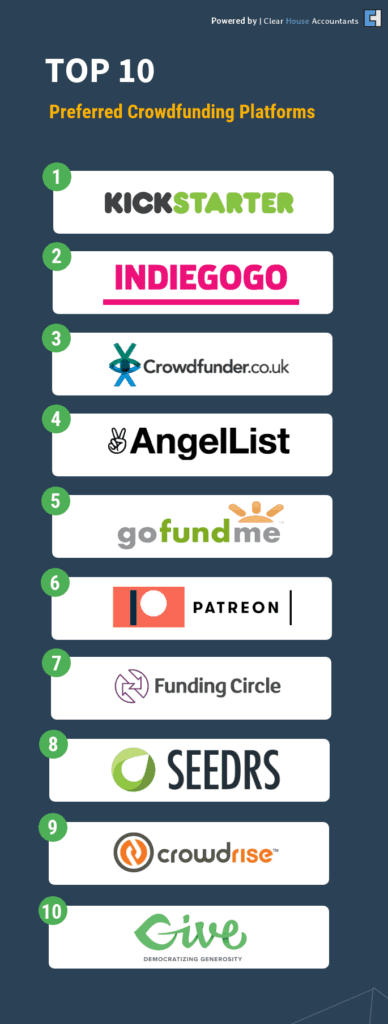
Tips for Running a Successful Crowdfunding Campaign
Running a successful crowdfunding campaign requires careful planning and execution. Here are some tips to help you make the most of your crowdfunding campaign:
Set clear goals and objectives
Before launching your campaign, define your goals and objectives. Clearly communicate what you aim to achieve with the funds raised and how you plan to use them. Setting clear goals helps potential backers understand your vision and increases the likelihood of their support.
Create a compelling campaign story
A compelling campaign story is essential for attracting backers to your project. Tell your story in a way that resonates with your target audience and clearly highlights the unique aspects of your project. Use visuals, videos, and infographics to make your campaign more engaging and memorable.
Engage with your backers
Engaging with your backers is crucial for building trust and maintaining their support throughout the campaign. Regularly update your backers on the progress of the project, answer their questions promptly, and show appreciation for their contributions. This ongoing engagement helps foster a sense of community and encourages backers to spread the word about your campaign.
Risks and Challenges in Crowdfunding
While crowdfunding offers several benefits, it also comes with its fair share of risks and challenges. Here are some common risks and challenges project creators may face during a crowdfunding campaign:
Failure to reach funding goal
One of the biggest risks in crowdfunding is failing to reach the funding goal. If a project does not receive enough support within the specified timeframe, it may not be able to access the funds pledged. It is important to set realistic funding goals and develop a robust marketing and promotion strategy to reach potential backers.
Intellectual property issues
Crowdfunding campaigns often involve showcasing innovative ideas and creative projects. However, this can also expose project creators to potential intellectual property issues. It is important to protect your intellectual property before launching a crowdfunding campaign and seek legal advice if necessary.
Lack of accountability
Crowdfunding campaigns involve the trust and support of backers. If project creators fail to deliver on their promises or use the funds inappropriately, it can lead to a lack of accountability and damage the reputation of crowdfunding as a whole. Transparency and regular updates are essential to maintain trust and ensure accountability.
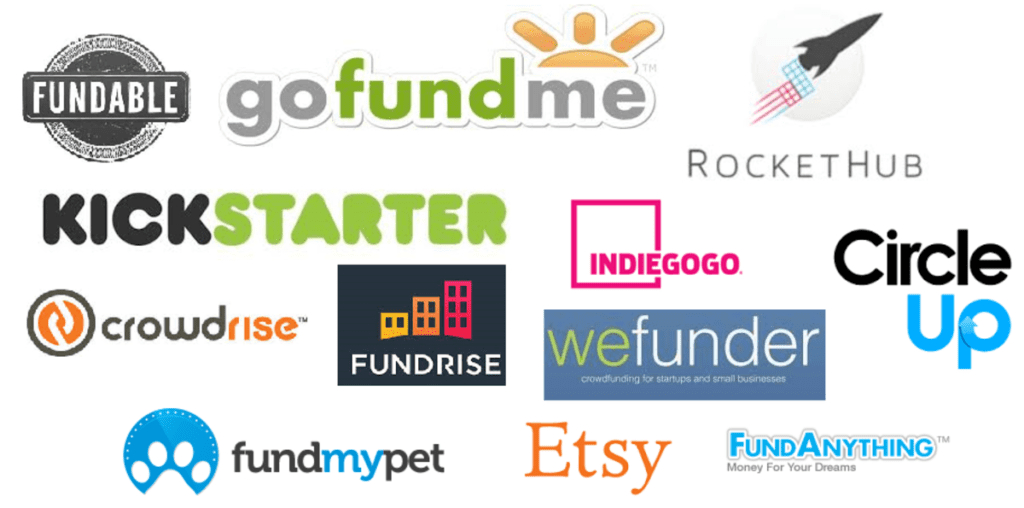
Legal and Regulatory Considerations
When engaging in crowdfunding, it is important to be aware of the legal and regulatory considerations. Here are some key areas to consider:
Securities regulations
Equity-based crowdfunding involves the sale of securities and is subject to securities regulations. It is important to understand the legal requirements and compliance obligations when offering equity as a reward for crowdfunding.
Tax implications
Crowdfunding can have tax implications for both project creators and backers. Depending on the jurisdiction, funds received through crowdfunding may be subject to income tax or other relevant taxes. It is advisable to consult with a tax professional to understand and comply with the tax obligations.
Intellectual property protection
As mentioned earlier, intellectual property protection is a critical aspect of crowdfunding. It is important to protect your intellectual property before launching a campaign to prevent unauthorized use or infringement.
Crowdfunding for Social Causes
Crowdfunding has proven to be a powerful tool for funding social causes and making a positive impact. Here are some ways crowdfunding can be utilized for social causes:
Social impact of crowdfunding
Crowdfunding enables individuals and organizations to rally support for social causes and raise funds to address social issues. It allows people from all walks of life to contribute to causes they believe in, empowering communities to make a difference.
Examples of successful social crowdfunding campaigns
There have been numerous successful social crowdfunding campaigns in recent years. Projects ranging from disaster relief efforts to educational initiatives and environmental conservation have all received significant support through crowdfunding.
Best practices for crowdfunding for social causes
To maximize the success of crowdfunding campaigns for social causes, it is important to create a compelling narrative that resonates with potential backers. Clearly communicate the social impact of the project and how the funds will be utilized. Regularly update backers on the progress of the project and show gratitude for their support.
Crowdfunding for Creative Projects
Crowdfunding has opened up new opportunities for artists and creative professionals to fund their projects. Here are some benefits and best practices for crowdfunding in the creative industry:
Benefits for artists and creative professionals
Crowdfunding allows artists and creative professionals to directly connect with their audience and receive support for their work. It provides an alternative to traditional funding sources and enables artists to retain creative control over their projects.
Examples of successful creative crowdfunding campaigns
Many successful creative projects, such as films, music albums, and art exhibitions, have been funded through crowdfunding. These projects have gained recognition and support from a global audience, resulting in increased visibility and success.
Tips for successful crowdfunding in the creative industry
To run a successful crowdfunding campaign in the creative industry, it is crucial to showcase the uniqueness of your project and clearly articulate how it will benefit backers. Offer exclusive rewards and experiences to attract potential supporters and leverage your existing network of fans and followers to spread the word about your campaign.
Crowdfunding for Startups and Small Businesses
Crowdfunding has emerged as a valuable avenue for startups and small businesses to raise capital. Here are some advantages and tips for attracting investors through crowdfunding:
Advantages for startups and small businesses
Crowdfunding offers startups and small businesses a platform to showcase their ideas and gain exposure to potential investors. It provides a level playing field and allows businesses to attract funding without relying solely on traditional sources such as banks or venture capitalists.
Tips for attracting investors through crowdfunding
To attract investors through crowdfunding, it is important to clearly communicate the value proposition of your business and demonstrate a solid business plan. Provide detailed financial projections and highlight the unique aspects of your product or service. Engage with potential investors and offer rewards or equity in return for their support.
Challenges faced by startups in crowdfunding
While crowdfunding offers several advantages for startups, it also comes with its challenges. Building a strong online presence, standing out among other projects, and gaining the trust of potential backers can be difficult. Startups also need to be prepared for the additional workload involved in running a crowdfunding campaign while simultaneously managing their business operations.
Conclusion
Crowdfunding has revolutionized the way individuals and organizations can raise funds for their projects, causes, and businesses. The availability of various crowdfunding platforms has made it easier than ever to connect with potential backers and receive support. When choosing a crowdfunding platform, consider factors such as accessibility, security, and flexibility. Running a successful crowdfunding campaign requires clear goals, compelling storytelling, and engaging with backers throughout the process. However, it is important to be aware of the risks and challenges associated with crowdfunding, as well as the legal and regulatory considerations. Whether it is for social causes, creative projects, or startups, crowdfunding has opened up new possibilities for innovation and community participation. So, if you have a great idea or a noble cause that needs funding, exploring crowdfunding platforms may be the perfect solution for you.


